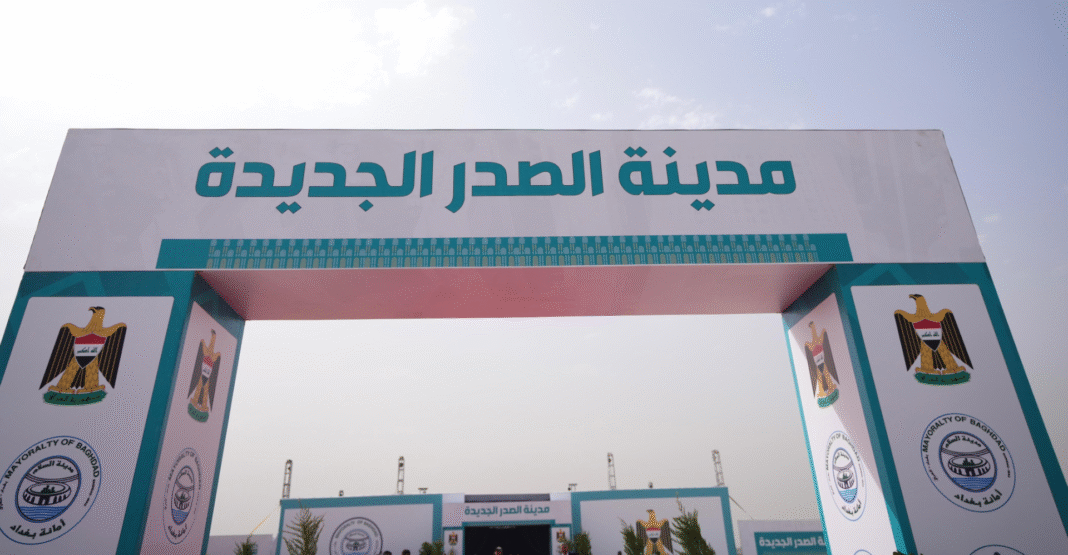Iraq has kicked off construction of the New Sadr City Project, a massive housing and infrastructure initiative in eastern Baghdad. Prime Minister Mohammed Shia Al-Sudani personally launched the effort, calling it a bold step toward urban modernization. Therefore, the project spans 4,000 dunams and will deliver 60,000 new homes equipped with modern public services.
To begin with, the new development lies between the Al-Maamel area and the current edge of Sadr City. It will include three main sectors, twelve districts, and fifty-two neighbourhoods. In addition to homes, the area will host a major commercial and service center to meet the needs of residents. Every part of the city will have access to roads, clean water, electricity, sanitation, and telecom services.
The Prime Minister praised the New Sadr City Project as a smart model for Iraq’s future growth. The government will build full infrastructure first, then allow private sector developers to construct the homes. This approach ensures quality control while encouraging private investment. It also gives residents better living conditions than informal settlements.
China’s Shandong Hi-Speed Group won the contract to build infrastructure for the first 11,000 homes. The deal was awarded after a competitive selection process. The work will take 1,200 days to complete. This phase marks one of the largest state-backed urban investments in recent years.
Importantly, the New Sadr City Project will not displace current residents. Al-Sudani stressed that no existing neighbourhoods will be torn down. Instead, the plan will connect older areas to new zones with improved roads and utilities. He said this project is part of a national housing strategy aimed at replacing unregulated developments with structured alternatives.
Already, work has started on eight of the sixteen new cities approved under the current government. These efforts reflect a clear shift toward organized urban growth across the country. Al-Sudani promised to provide people in informal settlements with high-quality alternatives through government planning.


